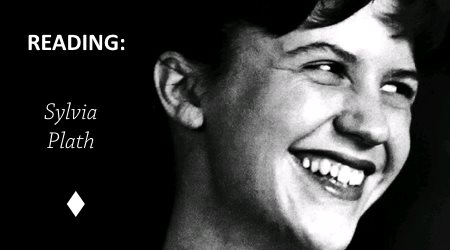The poetry of Sylvia Plath (1932-1963) never fails to impress. Lazarus and Daddy are household names in poetics, and the entire book Ariel counts as a masterpiece. You can find plenty of wonderful writing on Plath on sites like the Academy of American Poets. Here I read ‘Morning song’ and, as usual, give an interpretation that is deliberately not informed, or impaired by too much theoretical study.
Morning song
Love set you going like a fat gold watch.
The midwife slapped your footsoles, and your bald cry
Took its place among the elements.Our voices echo, magnifying your arrival. New statue.
In a drafty museum, your nakedness
Shadows our safety. We stand round blankly as walls.I’m no more your mother
Than the cloud that distills a mirror to reflect its own slow
Effacement at the wind’s hand.All night your moth-breath
Flickers among the flat pink roses. I wake to listen:
A far sea moves in my ear.One cry, and I stumble from bed, cow-heavy and floral
In my Victorian nightgown.
Your mouth opens clean as a cat’s. The window squareWhitens and swallows its dull stars. And now you try
Your handful of notes;
The clear vowels rise like balloons.
We compare the infant to a chubby gold watch that is slapped on the footsoles to run smoothly on the love it is fed. For the parents, the baby becomes an element, a statue. Bald and naked, vulnerable it shadows their safety (they provide safety to the infant). The parents are blank walls on which the arrival of the newborn throws its shadows.
The next lines are a little bit too cryptic to my taste and I am turned off by overuse of mirrors in poetry. Effacement means shortening of the uterine cervix as well as withdrawing into the background. Sylvia is a cloud that dissolves into thin air, raining some pretty words down before she goes (she gassed herself).
Okay, flickering moth-breath and flat pink roses, that’s good stuff. Now the mother hears the breath of her baby (Plath’s daughter Frieda) as the sound of a far sea. Did the child set her free? When she gets up at night to breastfeed her child, however, the dull stars in the window are swallowed. The baby’s mouth is clean and the sound of his morning song is clear. Does Plath feel the sterile atmosphere? Or is motherhood precisely her liberation and nursing her child following the call of the far sea?

One thought on “Reading: Morning Song by Sylvia Plath”
Comments are closed.